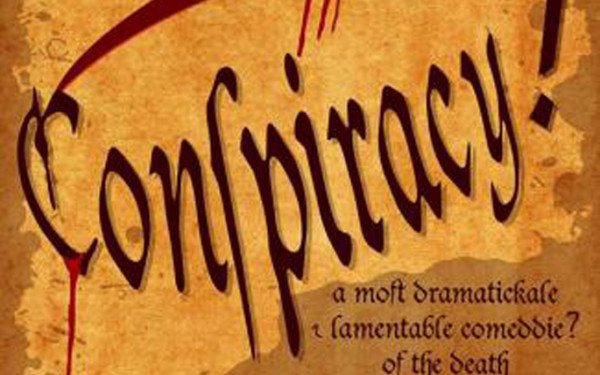Students in The Spotlight
Gala for Student Drama Showcases Young Talent
While finding a foothold in one’s preferred industry can be hard for any student, it seems to be especially difficult for those studying drama.
In a fast-paced city, it can be daunting for a student to discern where and how to get started. Luckily, teams of dedicated and passionate graduates have taken matters into their own hands, and have curated the Gala for Student Drama.
“The two English plays are from Concordia this year, which is really nice. Word definitely got around the theatre department pretty fast that this was happening,” said Julie Foster, a Concordia student and writer of “The Carrier Pigeon Play,” a comedy to be shown at this year’s festival.
“So, any kind of attention we can bring to these plays is a good thing for the Concordia community.”
Now in its third year, this quickly growing festival takes submissions from playwrights and producers from post-secondary institutions in Montreal. After narrowing them down to the four best productions, they are staged for the public at longstanding Montreal indie venue Mainline Theatre.
Applications were filled out earlier in the semester and two of the four final plays chosen were written by Concordia students—Foster and Alyssa Harms-Wiebe, who wrote “If Phones Could Talk.” From there, the four respective teams had six weeks to make their visions come to life—no easy feat, even for the most experienced producers.
“It just happened that there were two Concordia plays this year. When we receive the plays, we ask not to have the name of the school or anything,” said Ian Truman, the main brain behind the project, and himself a Concordia graduate. “If it’s good on paper, it’s probably good on stage too.”
Born and raised in Montreal, Truman is undeniably passionate about this project, and that passion seems to resonate with all those involved in the festival.
Passion, however, cannot always conquer nerves. Foster was anxious about the production, but bubbling underneath that was an excitement for what is taking shape over the next two weeks.
Foster has every right to be nervous about her upcoming debut, considering it’s her first real foray into production.
“Picking up the pace was definitely a challenge at first, but now that we all understand our play more, and with a lot of practice, it’s been a nice growing process for all of us involved,” said Foster.
Before this, Foster and her teammates had worked on original productions in high school, but nothing quite as extravagant as what this festival demands.
Each team is not only responsible for writing a successful play, they must also undergo the rigorous task of putting together sets, finding props and dealing with the technical aspects of a play, including lighting and sound.
This year, Truman has also made a point to push the teams into the limelight, and have them each deal with the media in some capacity so as to get experience in the real world of theatre and everything that entails.
“It’s so challenging, even as organization goes, but I feel we can accomplish anything as far as events go,” said Truman. “It’s very complex; we handle the space, the teams, the people and how you communicate with them—and we still have some issues with that, but we’re learning how to make everything more clear as we continue.”
With the festival’s opening date set for Feb. 14, the curtain will be rising very soon. Perhaps the most beneficial aspect to this festival, though, is that Truman and his team are there to help out participants every step of the way.
But this is not a competition; it’s an experience for students doing what they love. Without this festival, passionate theatre students would have a much harder time breaking into the industry.
One participant in this year’s edition, Laurie Murphy, was in high school this time last year—but what could be daunting for her has been made much easier with the help of the organizers. They are providing assistance not only for the productions themselves, but also in regards to handling media and other details.
“She’s nervous, but she’s eager, so we’re more than willing to spend time with her and help her out with these things,” said Foster.
“It’s not that she isn’t as good as everyone else, she’s just younger, so there’s an experience there,” she continued. “So, giving them press, giving them feedback, [and] technical direction is really going to benefit these students, hopefully.”
While this city can be daunting for those new to it, placing the Montreal culture at the forefront of the festival has been a focal point for Truman and his team.
Since its second year, the festival has been presented as a bilingual event, as Truman hopes to bridge the gap between francophones and anglophones—a topic that has seen some increased tension recently.
Ultimately, the creators of the event want students to take away a glimpse of real-world experience from their respective productions.
Whether or not the plays are successful, students can at least expect to see and experience every aspect that goes into creating a stage production—an indispensible experience in the world of theatre.
At the very least, this festival will put students in the spotlight they’ve been craving.
Play Program
“Carrelage,” written and directed by Sophie Daunais-Ouimet, assisted by Myriam Fugère (Université du Québec à Montréal)
“If Phones Could Talk,” written and directed by Alyssa Harms-Wiebe (Concordia University)
“The Carrier Pigeon Play,” (Fourteen to Never Theatre Company) written by Julie Foster, directed by Michelle Soicher (Concordia University)
“Solstices,” written and directed by Laurie Murphy, assisted by Florence Rainville, (CEGEP Saint-Laurent)
Gala for Student Drama / Feb. 14 to Feb. 16 / Mainline Theatre (3997 St. Laurent Blvd.) / 8:00 p.m. / $12.00

3_900_600_90.jpg)
_900_600_90.jpg)
2_900_600_90.jpg)
4_900_600_90.jpg)
5_900_600_90.jpg)


1_600_375_90_s_c1.jpg)
2_600_375_90_s_c1.jpg)

